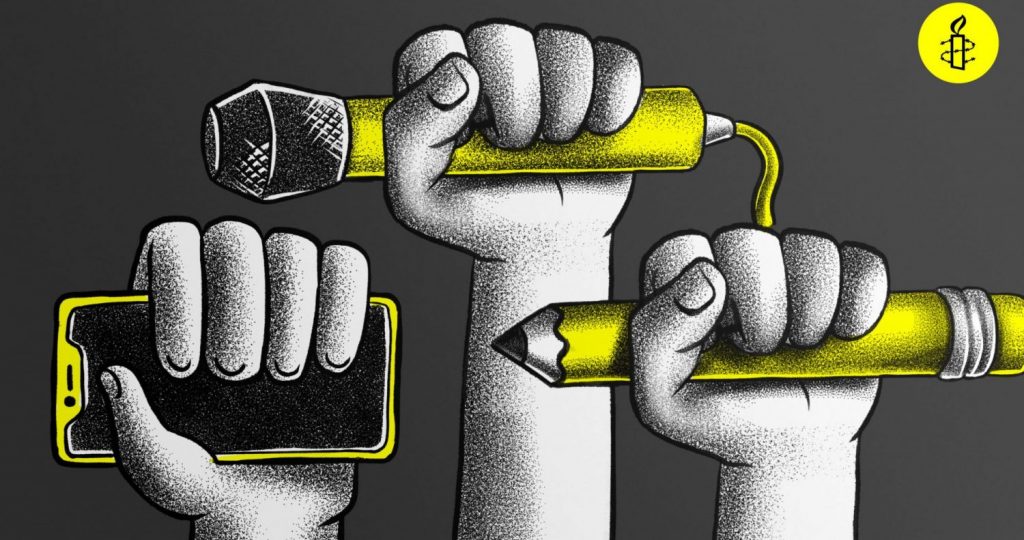On World Press Freedom Day, Amnesty International reiterates the call that independent journalists must be allowed to do their work free of harassment, intimidation, threats, and reprisals.
“The authorities need to step up their efforts to respect, protect and promote the right to freedom of expression and media freedom in the country. It is important that journalists can do their work in a conducive and safe environment. Journalism is not a crime, and the media should be free to do their work without fear,” Amnesty International South Africa’s executive director Shenilla Mohamed said.
“South African journalists are constantly finding themselves under attack and maligned by politicians and are facing targeted harassment on social media.”
While the media in South Africa enjoys more freedom than many of their counterparts on the continent and other parts of the world, they still find themselves facing a barrage of attacks on a daily basis, especially on social media. The trust in the media has waned over the past few years, especially because of misinformation and disinformation.
Last week, President Cyril Ramaphosa and Deputy Chief Justice Raymond Zondo, who chairs the commission of inquiry into state capture, highlighted the importance of the media. President Ramaphosa reportedly said the media has played a “patriotic role” in investigating state capture, reporting on it and bringing it to light.
“As we mark World Press Freedom Day, we call on the government, and political parties to publicly re-commit to ensuring respect for and promoting media freedom as enshrined in Section 16 of South Africa’s Constitution and human rights treaties including the International Covenant on Civil and Political Rights and the African Charter on Human and Peoples’ Rights, which South Africa has ratified.”
“Authorities must ensure that journalists are able to do their work in a safe environment,” Mohamed said.
“It is every person’s right to seek, receive and share factually correct information and ideas, without fear or unlawful interference.”
BACKGROUND
In the past year there have been a number of reports of journalists facing harassment, physically or online, while doing their work.
In February, journalists were assaulted while covering an anti-lockdown protest at Fish Hoek Beach.
In March, during university fees protests, journalists were reportedly intimidated and some protesters, allegedly aligned to the EFF, tried to stop them from reporting.
The SA National Editors’ Forum, on the eve of World Press Freedom Day, called on political leaders to stop interfering in newsroom matters and raised concern about continued utterances from senior political leaders naming journalists and interfering in operations in newsrooms.
Sanef said the online naming and targeting of journalists lead to harassment and attacks by political party followers and even physical and death threats.
-ENDS-
FOR MORE INFORMATION OR TO REQUEST AN INTERVIEW, PLEASE CONTACT:
Genevieve Quintal, Media and Communications Officer for Amnesty International South Africa on +27 64 890 9224 or email genevieve.quintal@amnesty.org.za


